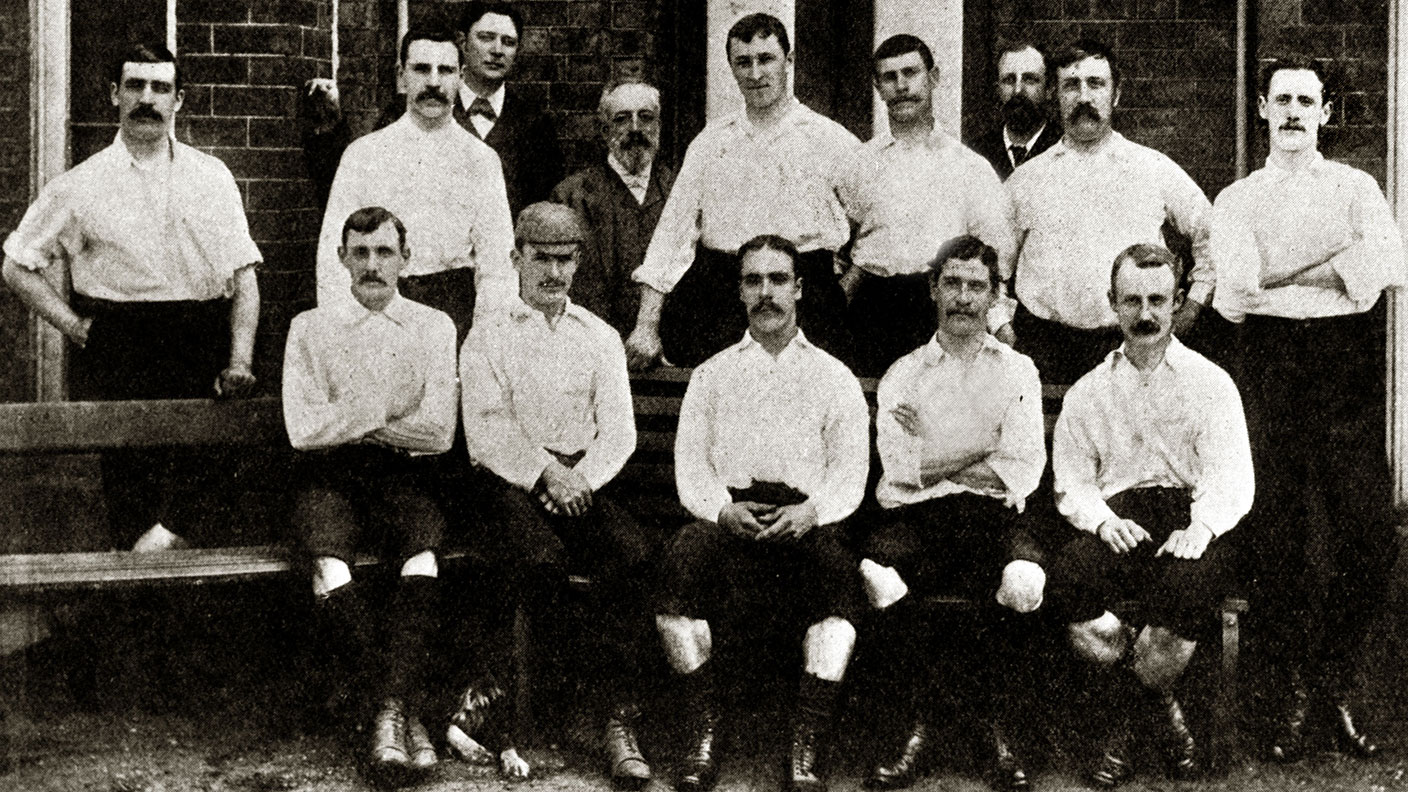
Get the latest financial news, insights and expert analysis from our award-winning MoneyWeek team, to help you understand what really matters when it comes to your finances.
You are now subscribed
Your newsletter sign-up was successful
Want to add more newsletters?

Twice daily
MoneyWeek
Get the latest financial news, insights and expert analysis from our award-winning MoneyWeek team, to help you understand what really matters when it comes to your finances.

Four times a week
Look After My Bills
Sign up to our free money-saving newsletter, filled with the latest news and expert advice to help you find the best tips and deals for managing your bills. Start saving today!
For the first couple of decades after 1863, when the game was first codified, football was an amateur game, played by foppish toffs in public schools, with a penchant for calling the game “soccer” to distinguish it from “rugger”.
Then northerners got in on the game – and they wanted paying. So, in 1885, the Football Association bowed to the inevitable, and legalised professionalism, after some of its biggest teams threatened to form their own breakaway association.
Clubs played in cup competitions and friendlies, but the organisation was chaotic – teams would often cancel games, or just not turn up. The professional teams wanted a reliable income, so in 1888 William McGregor, secretary of Aston Villa FC, sent a letter to four other clubs inviting them to form a league where "ten or twelve of the most prominent clubs in England" could "combine to arrange home-and-away fixtures each season", and asking for their suggestions for which other clubs to invite.
MoneyWeek
Subscribe to MoneyWeek today and get your first six magazine issues absolutely FREE

Sign up to Money Morning
Don't miss the latest investment and personal finances news, market analysis, plus money-saving tips with our free twice-daily newsletter
Don't miss the latest investment and personal finances news, market analysis, plus money-saving tips with our free twice-daily newsletter
And so it was that Accrington, Aston Villa, Blackburn Rovers, Bolton Wanderers, Burnley, Derby County, Everton, Notts County, Preston North End, Stoke, West Bromwich Albion, and Wolverhampton Wanderers came together to form the Football League – the first national league in the world.
The first matches were played on this day in 1888. Over 10,000 spectators headed to Anfield – then home to Everton – to see their team beat Accrington 2-1. And at Wolverhampton Wanderers, Aston Villa's Gershom Cox scored the league's first own goal, with the game ending in a 1-1 draw.
Preston beat Burnley 5-2, and would end the season as champions, going unbeaten for 22 games – a feat that would not be repeated until 2003-2004, when Arsenal ended the season without defeat.
Stoke lost 2-0 to West Brom, and ended the season at the bottom of the table, but were re-elected for the following season. Bolton lost 3-6 to Derby, while Blackburn and Notts County wouldn't meet until the following week.
The league proved so successful that in 1892 it was expanded to 28 teams, and split in to a 16-team first division and a 12-team second division.
Get the latest financial news, insights and expert analysis from our award-winning MoneyWeek team, to help you understand what really matters when it comes to your finances.

-
 Should you buy an active ETF?
Should you buy an active ETF?ETFs are often mischaracterised as passive products, but they can be a convenient way to add active management to your portfolio
-
 Power up your pension before 5 April – easy ways to save before the tax year end
Power up your pension before 5 April – easy ways to save before the tax year endWith the end of the tax year looming, pension savers currently have a window to review and maximise what’s going into their retirement funds – we look at how
-
 31 August 1957: the Federation of Malaya declares independence from the UK
31 August 1957: the Federation of Malaya declares independence from the UKFeatures On this day in 1957, after ten years of preparation, the Federation of Malaya became an independent nation.
-
 13 April 1960: the first satellite navigation system is launched
13 April 1960: the first satellite navigation system is launchedFeatures On this day in 1960, Nasa sent the Transit 1B satellite into orbit to provide positioning for the US Navy’s fleet of Polaris ballistic missile submarines.
-
 9 April 1838: National Gallery opens in Trafalgar Square
9 April 1838: National Gallery opens in Trafalgar SquareFeatures On this day in 1838, William Wilkins’ new National Gallery building in Trafalgar Square opened to the public.
-
3 March 1962: British Antarctic Territory is created
Features On this day in 1962, Britain formed the British Antarctic Territory administered from the Falkland Islands.
-
10 March 2000: the dotcom bubble peaks
Features Tech mania fanned by the dawning of the internet age inflated the dotcom bubble to maximum extent, on this day in 2000.
-
9 March 1776: Adam Smith publishes 'The Wealth of Nations'
Features On this day in 1776, Adam Smith, the “father of modern economics”, published his hugely influential book The Wealth of Nations.
-
 8 March 1817: the New York Stock Exchange is formed
8 March 1817: the New York Stock Exchange is formedFeatures On this day in 1817, a group of brokers moved out of a New York coffee house to form what would become the biggest stock exchange in the world.
-
7 March 1969: Queen Elizabeth II officially opens the Victoria Line
Features On this day in 1969, Queen Elizabeth II took only her second trip on the tube to officially open the underground’s newest line – the Victoria Line.
